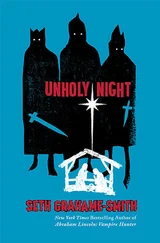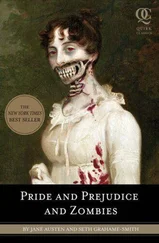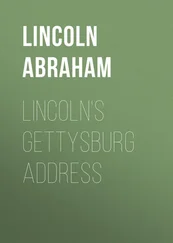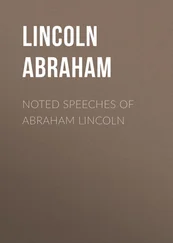For he had also fallen madly in love.
III
Jack was giving serious thought to turning his crossbow on Abe. They’d just made a miserable 200-mile trip north to the town of Chicago, sleeping under the freezing stars of late autumn, trudging through knee-high mud and waist-high water, “and the ganglin’ fool’d done nothin’ but talk ’bout a girl the whole damned way.”
Her name is Ann Rutledge. I believe her twenty or one-and-twenty years, though I dare not ask. It matters not. Never has a more perfect creature graced this earth! Never has a man been more in love than I! I shall write of nothing but her beauty in these pages for as long as I live.
Armstrong and Lincoln sat with their backs against the rear of a stable stall and their bottoms on a bed of loose hay, their breath visible in the cool night air coming off of Lake Michigan. A horse’s backside loomed over their heads, every twitch of its tail giving rise to the fear that something naturally foul was about to occur. They’d been waiting for their prey all night, one of them speaking in smiling whispers, the other contemplating murder.
“Have you ever been in love, Jack?”
Jack gave no answer.
“It is a strange feeling indeed. One finds oneself intoxicated with happiness for no reason at all. One’s thoughts turn to the most peculiar things….”
Jack pictured a steaming pile of manure falling into Abe’s mouth.
“I long for the smell of her. Do you think me strange for saying so? I long for the smell of her, and for the feeling of her delicate fingers in mine. I long to look at—”
The stable doors opened outside. Boot heels against wooden planks. Abe and Jack readied their weapons.
The vampire could not smell us over the animal stench, nor hear us trampling hay. His footsteps ceased; the stall door opened. Before he had time enough to blink, my ax was thrown in his chest, and Jack’s arrow shot through his eye and into his brain. He fell backward, shrieking and grabbing at his face as blood ran around the sides of the arrow. Upset by the noise, his horse reared up—I grabbed it by the bridle for fear that it would trample us both. As I did so, Jack pulled the ax from the vampire’s chest, raised it above his head, and brought it down on the creature’s face, splitting it clean in two. The vampire was still. Jack raised the ax above his head a second time, and brought it down with even greater force. He did this a third, a fourth time, striking the creature’s head with the blunt side of the blade again and again until nothing more than a flattened bag of skin and hair and blood remained.
“My God, Armstrong… what’s come over you?”
Jack pulled the ax blade— crunch —from what had formerly been the vampire’s face. He looked up at Abe, out of breath.
“I pretended he was you.”
Abe held his tongue on the journey home.

Ann Mayes Rutledge was the third of ten children—daughter of New Salem’s cofounder, James, and his wife, Mary. She was four years Abe’s junior, but every bit his equal when it came to her appetite for books. She’d been away during most of Abe’s first year and a half in New Salem, tending to a sickly aunt in Decatur and reading everything she could get her hands on to pass the time. There is no record of what happened to her aunt (either she died, got better, or Ann simply grew tired of caring for her), but we know that Ann returned to New Salem before or during the summer of 1834. We know this because she and Abe first met on July 29th at the home of Mentor Graham, whose library both borrowed from, and whose tutelage both sought from time to time. Graham remembered her as a twenty-something with “large, expressive blue eyes,” a “fair complexion,” and auburn hair—“not flaxen as some have said.” She had “a good mouth and good teeth in it. Sweet as honey and nervous as a butterfly.” He also remembered the moment when Abe first made her acquaintance. “I have never seen a man’s jaw hang quite so low before or since. He looked up from his book and was hit square in the heart by that ancient arrow. The two exchanged pleasantries, but I recall the conversation being one-sided, for Lincoln could hardly keep his wits about him—so struck was he by this lovely vision. So amazed was he by her love and knowledge of books.”
Abe wrote about Ann that very day.
Never has there been such a girl! Never has a creature so beautiful and so bright existed in one body! She is a good foot shorter than I, with blue eyes and auburn hair and a shining, perfect smile. She is a bit slender, though it cannot be held against her, for it suits her kind, delicate nature. How shall I ever sleep again knowing she is out there in the night? How shall I ever keep another thought in my head when she is all I care to think about?
Abe and Ann saw more of each other, first at Mentor Graham’s, where they carried on lively discussions of Shakespeare and Byron; then on long, late summer walks, where they carried on lively discussions of life and love; then on Ann’s favorite hilltop overlooking the Sangamon, where they hardly talked at all.
I am almost ashamed to record it here, for I fear it may somehow cheapen the thing itself, but I cannot resist. Our lips met this afternoon. It happened as we sat upon a blanket, watching the occasional flatboat drift silently by below. “Abraham,” said she. I turned, and was surprised to find her face so close to my own. “Abraham… do you believe what Byron says? That ‘love will find a way through paths where wolves fear to prey’?” I told her that I believed it with all my heart, and she pressed her mouth to mine without another word.
It is the moment that I wish to remember with my dying breath.
Three months remain before I am required in Vandalia, and I plan to fill every moment of them with Ann’s company. She is the most fetching… most tender… most brilliant star in the heavens! Her only fault is that she lacks sense enough to avoid falling in love with such a fool as I!
Abe would never write with such flowery flourish again. Not of his wife; not even of his children. It was the stomach-turning, obsessive, euphoric love of youth. A first love.
December came “too quickly.” He bade Ann a tearful farewell and rode to Vandalia to take his oath as a member of the legislature. The prospect of being a “rail-splitter seated beside men of letters” (which had previously given him fits of excitement) now hardly mattered at all. For two agonizing months, he sat in the Capitol thinking of Ann Rutledge and little else. When the session closed at the end of January, he was “out the door before the sound of the gavel ceased to echo,” and sped home for what would be the best spring of his life.
There is no music sweeter than the sound of her voice. No painting more beautiful than her smiling face. We sat in the shade of a tree this afternoon, Ann reading Macbeth as I lay my head across her lap. She held the book in one hand, and played with my hair with the fingers of the other—gently kissing my forehead with each turn of the page. Here, at last, is all that is right with the world. Here is life. She is the antidote to all the darkness that poisons this world. When she is near I care nothing of debts or vampires. There is only her.
I have resolved to ask her father’s permission to marry. There is but one insignificant obstacle in the way of my doing so, and I shall see to its removal at once.
That “insignificant obstacle” was named John MacNamar—and contrary to Abe’s flippant reference, he posed a serious threat to their happiness.
That’s because he and Ann were engaged to be married.
[MacNamar] is by all accounts a man of questionable character, who pledged his love to Ann when she was but eighteen, only to depart for New York before such time as they could marry. The few letters she received from him in Decatur were hardly those of a man in love, and it has been ages since she has received any word from him at all. Until he releases her, however, I shall not be satisfied. But I take heart (for the course of true love has never run smoothly *) and expect that all shall be swiftly and happily resolved.
Читать дальше













